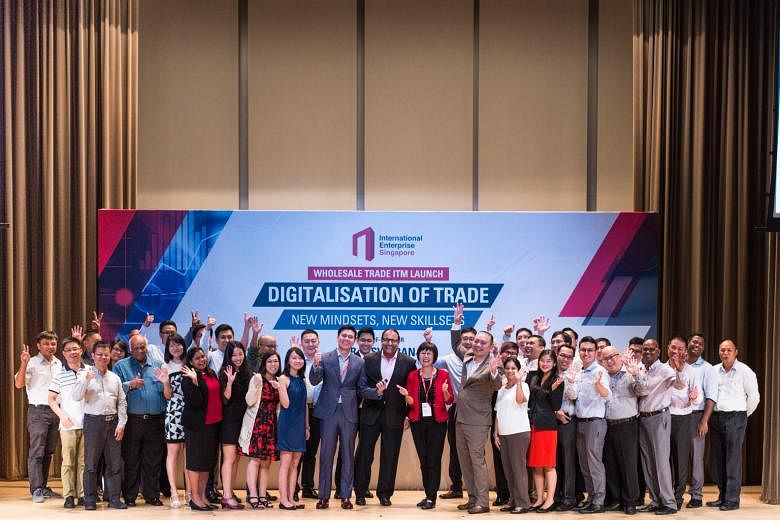SINGAPORE - The Republic stands to gain from the Asia's consumer boom by embracing unified digital platforms and developing workers' skills, Minister for Trade and Industry (Industry) S Iswaran said on Wednesday (Sept 6).
His comments came as he unveiled the industry transformation map for the wholesale trade sector, which deals in the exchange of goods between businesses.
The road map for the sector is one of 23 such industry plans, with a twin focus on digitalisation and skills development.
It has set a five-year growth target of between 3.3 per cent and 3.5 per cent - a figure in line with global trade projections for the same period.
On the table are the economic opportunities to be seized in the changing way cross-border trade is done.
IE Singapore chief executive Lee Ark Boon said in a statement: "Asia's boom in urbanisation and consumerism presents new opportunities. 'South-South' trade is also growing much faster and Singapore is well positioned to play an important role."
His agency, which is merging with Spring Singapore to form the new Enterprise Singapore, is spearheading the wholesale trade strategic plan, which involves banking on regional markets for growth.
Deep knowledge of regional markets in South-east Asia, said Mr Iswaran, "has to be one of our differentiating competitive advantages".
IE is trying to plug gaps in supply and demand networks with digital marketplaces that will capture data and cut inefficiencies so that small and medium-sized enterprises (SMEs) here can connect with opportunities in emerging markets.
The agency is also working with the Infocomm Media Development Authority and the Monetary Authority of Singapore to identify fintech solutions to capture value from e-commerce trade flows.
Meanwhile, a smart supply-chain deal was inked at the launch event, as trade services provider Global eTrade Services Global and IBM Asia Pacific agreed to set up automated customs declaration at 18 checkpoints globally - including Singapore.
The system will also have the cognitive and analytics ability to help traders manage risks, such as proposing alternative shipment routes should obstacles crop up.
A one-stop shop for regional customs clearance is also set to make its debut by the end of 2017, with about 500 Singapore freight forwarders and shippers already on board.
Mr Iswaran said: "These marketplaces will allow companies to pool resources and complement their product offerings to sharpen their competitiveness, and this will be particularly beneficial to small and medium enterprises. These platforms will enhance companies' ability to immediately expand market reach and improve their productivity."
The industry plan also hopes for another 10,000 jobs to be created from 2016 to 2020, on top of the 325,000 positions now.
People's Action Party MP and NTUC assistant secretary-general Patrick Tay floated this goal in a blog post on Monday.
A skills framework for the sector is set to come into play by the second half of 2018, with agreements signed on Wednesday to create new tertiary, university and professional training programmes in international trade.
These come on top of existing schemes such as the Professional Conversion Programme for international trading executives, which kicked off in 2016 and has since placed 65 workers making a mid-career switch.


